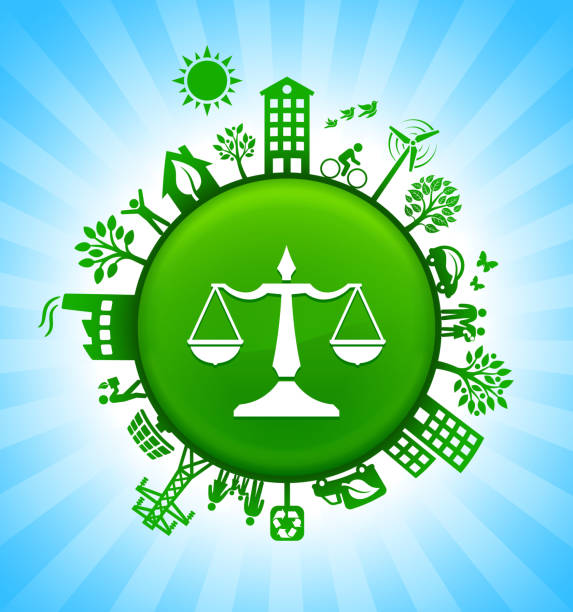
The Vital Role of Environmental Law
In the face of growing environmental challenges, the realm of environmental law plays a pivotal role in safeguarding our planet. It serves as a legal framework designed to regulate human activities, ensuring the responsible use of natural resources, and fostering sustainable practices that preserve the delicate balance of our ecosystems.
Preserving Biodiversity: A Cornerstone of Environmental Law
One of the primary focuses of environmental law is the preservation of biodiversity. Regulations and treaties are crafted to protect endangered species, habitats, and ecosystems. By enforcing these measures, environmental law acts as a shield against the encroachment of human activities that may jeopardize the intricate web of life on Earth.
Mitigating Pollution: Striking a Balance Between Progress and Preservation
Environmental law strives to strike a delicate balance between economic progress and environmental preservation. Regulations addressing air and water quality, waste management, and hazardous substances work to mitigate pollution. By imposing standards and penalties, these laws incentivize industries to adopt eco-friendly practices, fostering a cleaner and healthier environment.
Land Use and Conservation: Sustainable Development in Action
The intersection of land use and conservation is a critical aspect of environmental law. Zoning regulations, protected areas, and conservation easements aim to guide development in a manner that minimizes environmental impact. These measures promote sustainable land use, ensuring that the needs of the present generation are met without compromising the ability of future generations to meet their own needs.
Climate Change Mitigation and Adaptation: A Global Imperative
In the era of climate change, environmental law takes on new dimensions. International agreements and national regulations are crafted to address greenhouse gas emissions, promote renewable energy, and foster climate resilience. These legal frameworks underscore the global imperative to combat climate change and protect communities from its far-reaching impacts.
Amidst the evolving landscape, staying informed is crucial. Environmental Law provides a comprehensive resource for real-time updates, analysis, and insights into the dynamic world of environmental law. It’s a valuable platform for individuals and businesses seeking to navigate the complexities of environmental regulations.
Environmental Justice: Bridging Gaps and Ensuring Fairness
Environmental law is not only about protecting the planet; it’s also about justice. Communities disproportionately affected by environmental hazards often face social and economic challenges. Environmental justice provisions within the legal framework aim to bridge these gaps, ensuring that the benefits and burdens of environmental policies are distributed equitably.
Water Resource Management: Balancing Supply and Demand
Sustainable water management is a critical aspect of environmental law. Regulations address issues such as water rights, allocation, and pollution prevention. By managing water resources effectively, environmental law contributes to the preservation of aquatic ecosystems and ensures a stable and secure water supply for both human and environmental needs.
Waste Reduction and Recycling: Towards a Circular Economy
Environmental law actively promotes the concept of a circular economy by addressing waste reduction and recycling. Regulations encourage responsible waste disposal practices, promote recycling initiatives, and set standards for the handling of hazardous materials. The aim is to minimize the environmental impact of waste while maximizing the reuse of valuable resources.
The Role of Individuals and Businesses: Compliance and Beyond
While environmental law sets the legal framework, the responsibility extends to individuals and businesses. Compliance with environmental regulations is not just a legal obligation but a moral imperative. Beyond compliance, there is an increasing emphasis on corporate social responsibility and sustainable practices, aligning business interests with environmental stewardship.
In navigating the intricate landscape of environmental law, it’s clear that the proactive engagement of individuals, businesses, and communities is crucial. As we collectively strive for a more sustainable future, the guidance and insights provided by environmental law serve as a compass, steering us towards a harmonious coexistence with our planet.











